 |
WORLD WAR I WAS FINANCED BY SOUTH AFRICAN GOLD. ORTHODOX RUSSIA MOBILIZED FASTER THAN EXPECTED SO THE WAR BECAME A STALEMATE. AFTER THE RUSSIAN REVOLUTION, 1 MILLION GERMANS WERE REDEPLOYED TO THE WESTERN FRONT. THE DOUGHBOYS WERE DRIVING THE BOCHE BACK TO BERLIN, SO AN ARMISTICE (TRUCE) WAS DECLARED ON NOV. 11, 1918. ADOLF HITLER BROKE THE TRUCE IN 1939. |
 |
This expose will make all previous histories of World War I obsolete . . . or gone with the wind....The Great War, or World War I, did not begin in Sarajevo on June 28, 1914. It began in South Africa on October 11, 1899, when spy Jan Smuts maneuvered the Boers into firing the first shot!
The Boer War or the Gold War was the first war of the bloody 20th century. It pitted the might of the British Empire against a small group of Dutch farmers. Boer is simply the Dutch word for FARMER.
Diamonds were discovered in South Africa in 1867 and gold in 1872. By 1897 South Africa was the world's largest exporter of gold.
The golden rule states that "whoever has the gold; makes the rules." The Boer War was all about the Bank of England gaining a complete monopoly on South African gold. In the 16th century, the brutal Spanish Empire committed a similar genocide to gain a monopoly on New World gold....Only Heroic Holland stood in the way of Spanish global hegemony!
 Cecil Rhodes (1853–1902) aged 37. |
|
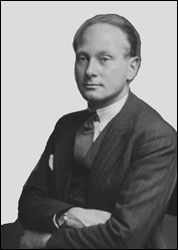 Alfred Beit (1853–1906). |
Together with Rhodes, Beit coordinated the Jameson Raid, which was supposed to trigger an uprising among the British expatriate workers called Uitlanders.
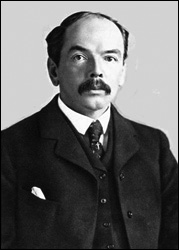 Dr. Leander Starr Jameson (1853–1917). |
|
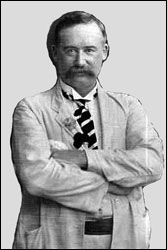 James Percy Fitzpatrick (1862–1931). |
Jameson had very powerful friends in the government who obtained his release, and he was later rewarded with a knighthood and baronetcy. Crime does pay . . . sometimes!
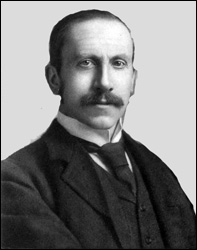 Alfred Milner (1854–1925). |
|
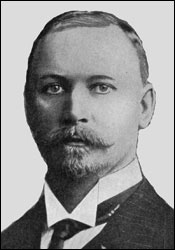 Jan Smuts (1870–1931). |
After he reinvented himself as an outspoken British Empire critic, Smuts was given a very important position in the government of Paul Kruger.
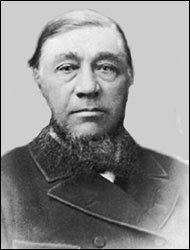 Paul Kruger (1825–1904). President of the South African Republic from '83 to 1900. |
|
 Smuts with a group of Boer commandos. Smuts with a group of Boer commandos. |
The text of the ultimatum was received in London with derision, delight, and disdain:
Milner got his war. Both the British and Boer representatives rejected the terms they demanded of each other, and to Milner’s delight Kruger approved an ultimatum written by Smuts that accused Britain of breaking the 1884 London Convention, drawn up after the first Boer War of 1880–81. The text of the ultimatum was received in London with derision, delight and disdain. The Daily Telegraph didn't know whether to laugh or cry. The editorials rejoiced in the fact that ‘Mr Kruger has asked for war, and war he must have.’ It was all to be over by teatime. (Docherty & Macgregor, The Hidden History of WWI, p. 45).
The British were using the Maxim machine gun for the second time but they were no march for the mobile farmers armed with rifles.
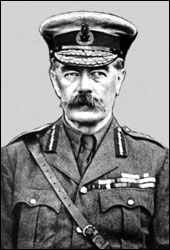 Field Marshal Horatio Kitchener (1850–1916). |
|
 Field Marshal Douglas Hag (1861–1928). |
With the cream of the British Army turned into whipped cream, Lord Kitchener resorted to a diabolical scorched earth policy. That entailed burning all the Boer farm houses and interning the women and children in concentration camps!
Another dastardly outcome of the war was the creation of the myth of "war hero" Winston Churchill.
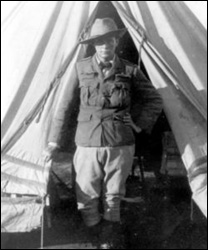 Churchill after his "escape" from a prison camp in South Africa. |
|
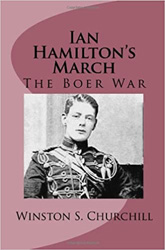 Cover of the book Ian Hamilton's March by Winston Churchill. |
From that time onward there was no looking back for the fake "war hero" Winston Churchill. When the brutal war of extermination finally ended, the Republic of South Africa was annexed to the British Empire.
The local population was so decimated that there was no one left to work the mines. As a result, thousands of laborers were imported from China on coffin ships.
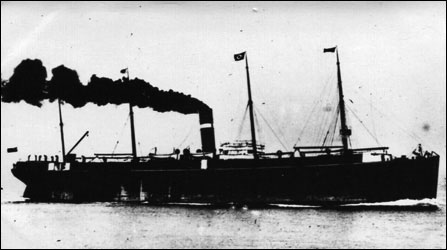 Thousands of Chinese laborers were packed like sardines
on Thousands of Chinese laborers were packed like sardines
on the SS Ikbal. Many died enroute and were thrown overboard! |
|
 Thousands of Chinese laborers Thousands of Chinese laborers were imported into South Africa. |
By the time they arrived in Durban, 51 men had died and their bodies were thrown overboard:
On arrival, the men were tagged like pieces of meat and sealed in railroad cars for the 30-hour journey to the Transvaal. The garden cities were a myth. In reality, the Chinese workers lived in huge hutted compounds beside the mines with men in each small shack. They were unable to leave the compounds without a special permit and were fined for the slightest breach of the rules. The men worked ten hours a day for a wage of twenty-five cents. In addition, they had to work at lower rates for at least six months to pay back the costs of their passage from China. If any man failed to carry out his allocated work, he could be flogged and given a heavy fine. Although it was illegal, Milner approved the flogging of the Chinese workers as a necessary sanction, and the Conservative government backed him. It was an act of classic, old-fashioned imperialism. Many who could not keep up with the backbreaking toil were in perpetual debt to the mines. If still alive after three years, they were to be shipped back to China like spoiled returned goods. ‘These Chinese were brought over in the prime of life to be broken on the wheel within three years for the purpose of grinding out ever greater profits for the monsters of greed who owned them'. (Docherty & Macgregor, The Hidden History of WWI, p. 37).
The Chinese worshipped their ancestors and they definitely did not approve of burial at sea....Little did the Chinese laborers realize that the gold they were mining was going to finance Queen Victoria's favorite grandson!
After the Boer War debacle, the CID vowed never to use British Empire troops again!!
After their abysmal performance in the Boer War, the Committee for Imperial Defence vowed never to use British Empire soldiers again.
Britannia still misruled the waves, but the British military establishment decided to hire mercenaries to do all the real fighting in the future. It just so happened that the Prussians were more than willing to go to war for them . . . but the Boche demanded a big share of the South African gold.
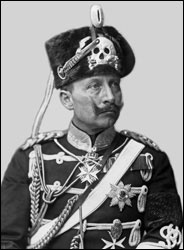
"Dead Head" Kaiser Wilhelm was
financed by South African gold. |
|
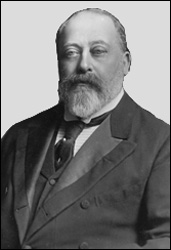
King Edward VII (1841–1910).
Misruled from 1902 to 1910. |
For the first time in 1000 years, Britannia embraced her neighbor and age-old rival. The king did all the diplomatic maneuvering and the Prime Minister and Cabinet was not consulted.
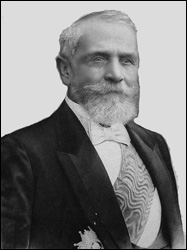 President Émile Loubet (1838–1929). President from 1899 to 1908. |
|
 King Edward and Nicholas Dagmar at Reval, May 1908. |
Naturally "Kaiser Bill" now felt encircled by Britain, France, and Russia so it was the excuse he needed to start the war! The First Moroccan Crisis in 1905 almost led to a war between France and Germany, and the Agadir Crisis in 1911 almost led to a war between the 2 countries.
That plotting by Albion was so perfidious that even Lucifer himself was jealous of the conspirators....Not all Britons embraced the top secret diplomacy of King Edward. As a "constitutional monarch" he was not even supposed to be involved in politics.
 Henry Campbell-Bannerman (1836–1908). Prime Minister from 1905 to 1908. |
|
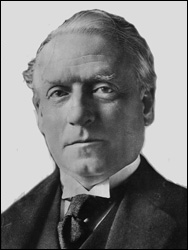 Herbert Henry Asquith (1852–1928). Prime Minister from 1908 to Dec. 1916. |
Henry Campbell-Bannerman was the only Prime Minister to die in 10 Downing Street. 10 Downing Street is named after Sir George Downing who was Oliver Cromwell's spymaster, and then served King Charles II after the Restoration.
The rapid Russian mobilization turned the war into a bloody stalemate!!
The proud Kaiser's boast was "lunch in Paris, and dinner in Saint Petersburg." The Kaiser had never read this verse from Saint Martin Luther's translation of the Holy Bible: "Let not him that girdeth on his armour boast like him that putteth it off" (I Kings 20:11).
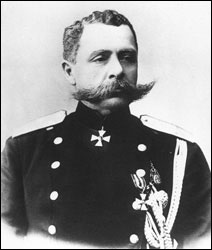 General Paul von Rennenkampf (1854–1918). |
|
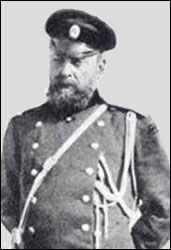 General Alexander Samsonov (1859–August 1914). |
Here is a quote about that fateful incident by Winston Churchill....As usual, it is only half the TRUTH:
And at that culminating moment the Russian pressure began to produce substantial effects. Honour must ever be done to the Tsar and Russian nation for the noble ardour and loyalty with which they hurled themselves into the war. A purely Russian treatment of their military problem would have led the Russian armies into immediate withdrawal from their frontiers until the whole of their vast mobilization was completed. Instead of this, they added to a forward mobilization an impetuous advance not only against Austria but against Germany. The flower of the Russian Army was soon to be cut down in enormous battles in East Prussia. But the results of their invasion were gathered at the decisive point. The nerve of the German Headquarters failed. On August 25 two army corps and cavalry of the German right were withdrawn from France. On August 31 Lord Kitchener was able to telegraph to Sir John French "Thirty-two trains of German troops were yesterday reported moving from the western field to meet the Russians." (Churchill, The World Crisis 1911–1918, p. 147).
General Von Rennenkampf was not able to stop the Prussian juggernaut, so General Samsonov was supposed to support him. Samsonov turned out to be a complete failure, so General von Rennenkampf was denied the prize of entering Berlin and ending the war.
 George Curzon (1859–1925) engineered the Revolution. |
|
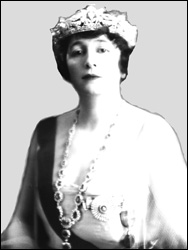 Grace Elvina Curzon (1885–1958). Second wife of George Curzon. |
In 1917, Lord Curzon married Grace Elvina Hinds from Alabama, and he fully expected to be appointed "Governor General of the Confederacy" when "Kaiser Bill" finally won the big one! Curzon's second daughter, Cynthia Blanche, was the first wife of British Fascist Sir Oswald Mosley.
It's easy to win a war if the generals on the other side are on your payroll....Likewise, it's easy to launch a Revolution if you control all the men and women at the top!
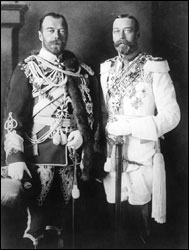 King George V and Nicholas Dagmar. |
|
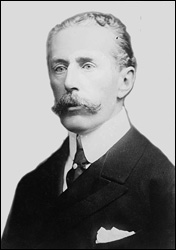 Sir George Buchanan (1854–1924). Russian amb. from 1910 to 1917. |
Like Lord Lyons before the assassination of President Lincoln, he feigned an illness, and he left Russia just before his "Bolsheviks" seized power!
Under the Treaty of Brest-Litovsk vast areas of Russia were surrendered to the Second Reich. That territory included Poland, UKraine, and Crimea. That treaty facilitated the transfer of 1 million Boche from the East to the Western Front.
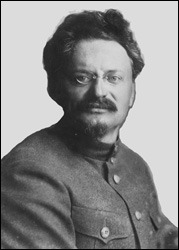 Edomite Leon Trosky (1879–1940). Commissar for Military and Naval Affairs. |
|
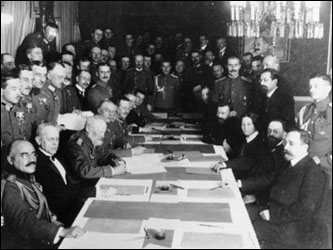 Signing of the Brest-Litovsk Treaty on December 15, 1917. |
After the treaty was signed the Prussians were singing "Gott mitt uns" because they knew that nothing stood in their way to final victory!
The armistice cheated the New Jerusalem out of victory on November 11, 1918
The New Jerusalem was cheated out of victory on the 11th hour of the 11th day of the 11th month of 1918.
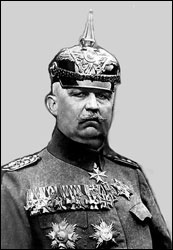 General Erich Ludendorff (1865–1937). |
|
 Marshal Ferdinand Foch (1851–1929). |
General John J. Pershing was in charge of the American Expeditionary Force (AEF). The Doughboys arrived in France without arms and ammunition, especially their excellent Springfield rifles....All of their rifles, artillery, and tanks were supplied by the French and British.
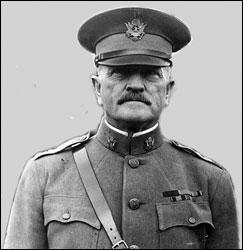 General John Joseph Pershing (1860–1948). |
|
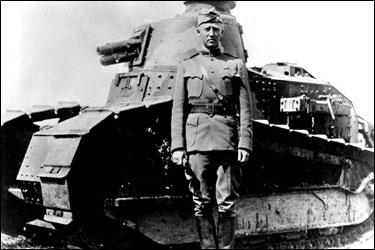 Colonel George S. Patton in front Colonel George S. Patton in front of a French Renault tank in 1918. |
Amazingly, instead of invading Germany from the South through Metz, the Doughboys were ordered to advance through the heavily defended Argonne Forest. General Patton found himself in the very same situation in WWII. By September 1944 his Third Army was on the southern border of Germany and he expected to be in Berlin in a few weeks. Unfortunately, his supply of gas was diverted to "Field Marshall" Montgomery's failed Operation Market Garden.
In a matter of months, General Pershing accomplished miracles by organizing a completely green army and sending it into combat against the fanatical and highly experienced Prussians....WWI produced a fake "war hero" named Harry S. Truman.
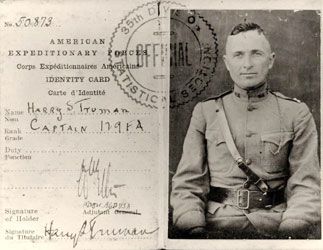 Ted Marks Selective Service photo had the name Captain Harry S. Truman. |
|
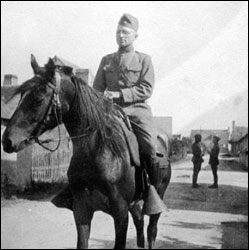 Ted Marks, aka Captain Truman, at Camp Coetquidan, Brittany, July 1918 |
The real "war heroes" never came back because the fighting was unlike anything seen in any other war in history. Machine guns, snipers, artillery, flamethrowers, poison gas, rain, mud, cold, rats as big as cats, barbed wire, and Boche pilots dropping potato-masher grenades from overhead....Mentally, the survivors were permanently scarred for life!
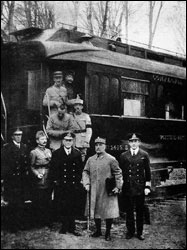 Ferdinand the fossil signed the Armistice on Nov. 11, 1918. |
|
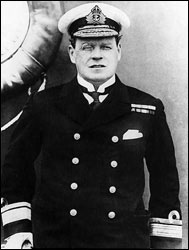 Admiral Rosslyn Wemyss (1864–1933). |
The conspirators in London knew that Queen Victoria had another grandson named Adolf Hitler who served in the trenches during the war. He would pick up the fallen pickelhaube and launch another world war just 21 years later!
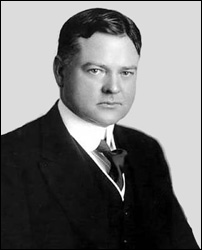 Herbert Hoover (1874–1964) fed the Boche from Belgium during the war. |
|
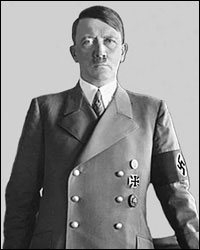 Führer Adolf Hitler (1889–1962). Führer from 1933 to 1945. |
Nurse Edith Cavell wrote letters from Belgium to her friends in Britain about the CRB feeding the Boche so she was silenced by a firing squad on October 12, 1915.
In April 1929, Hoover became President of the United States, and his cronies engineered the Wall St. crash of October 1929. The subsequent Great Depression led to the 1933 "dictatorship" of Franklin D. Roosevelt, and the dictatorship of Adolf Hitler in Germany.
Vital links
References.
Churchill, Winston S. The World Crisis 1911–1919. (Abridged version, originally 5-volumes).Charles Scribner's Sons, New York, 1929.
Docherty, Jerry & Macgregor, James. Hidden History: The Secret Origins of the First World War. Kindle Edition. An awesome expose, but the authors fail to mention that
De Courcey,Anne. The Viceroy's Daughters: The Lives of the Curzon Sisters. William Morrow & Company, New York, 2000.
Gilmour, David. Curzon: Imperial Statesman. Penguin Books, London, 2019.
Hibbet, Christopher. Edward VII: The Last Victorian King. Palgrave Macmillan, London & New York, 2007.
Lengel, Edward G. To Conquer Hell: The Meuse-Argonne, 1918 The Epic Battle That Ended the First World War. Henry Holt & Company, New York, 2013.
Meyer, G. J. A World Undone: The Story of the Great War 1914–1918. Delacorte Press, New York, 2006.
McCormick, Donald. The Mystery of Lord Kitchener's Death. Putnam, London, 1959.
Pershing, John J. My Experience in the World War. Frederick A. Stokes, London, 1931. Kindle Edition.
Snith, Gene. Until the Last Trumpet Sounds: The Life of General of the Armies John J. Pershing. John Wiley & Sons, New York, 1998.
Steyn, Richard. Churchill's Confidant: Jan Smuts From Enemy to Lifelong Friend. Little Brown & Company, London, 2017.
Copyright © 2021 by Patrick ScrivenerCopyright © 2021 by Patrick Scrivener